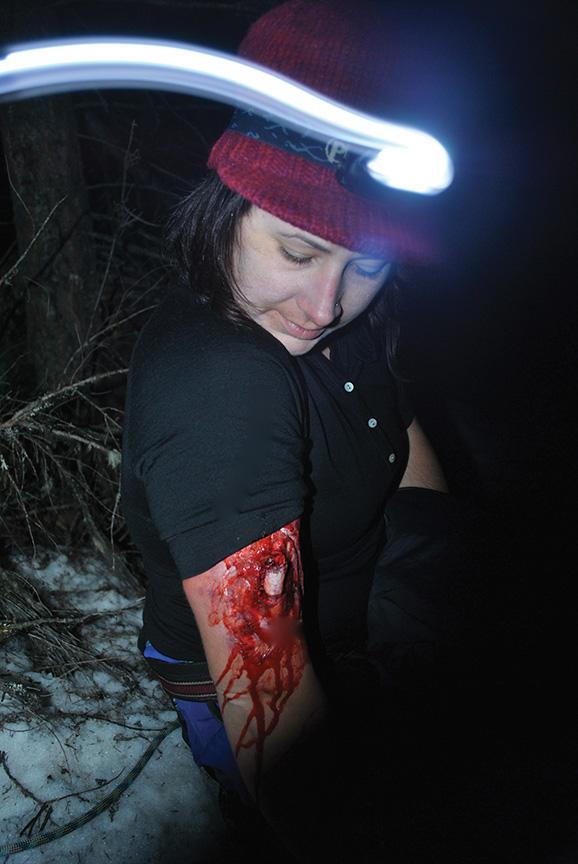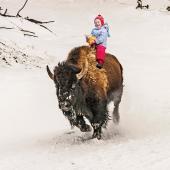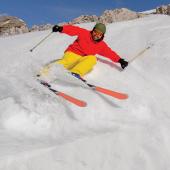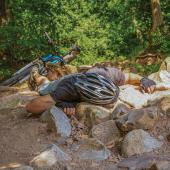Seeing Red
Blood control on the ski hill.
While skiing at Bridger Bowl last year, I got poked in the leg by a tree branch. It tore my ski pants, leaving a large bruise on my thigh. As I checked for blood in the Schlasman’s lift line, it dawned on me that my pack was missing a few vital ingredients. I’ve since added the essentials for basic trauma care in any ski pack, especially if one ventures out of bounds.
The first thing I added was a package of Quik Clot gauze, which is a hemostatic dressing. These are more effective at controlling bleeding than standard gauze as they actually promote clotting, and can also be found under the brand name Combat Gauze. In addition to the hemostatic dressing, I have also added a roll of Coban (another brand name is Coach), which is a handy self-adhering wrap to put some pressure on the hemostatic bandage. I also carry a small roll of duct tape, which can be used for just about anything, including making a splint with either sticks or your ski poles. If you use it to apply dressings or a splint, be careful that you don’t get it too tight as it’s an extremely non-compliant material.
Depending on the difficulty of routes you ski, carrying a tourniquet is not out of the question. If it’s a “you fall, you die” kind of route, an open femur fracture is certainly possible, and the bleeding could be severe. I don’t carry one myself, but they are available at sporting-goods stores, Army Navy stores, or on Amazon. Windlass-type devices seem to work as well, and the wider strap material exerts less pressure on the underlying skin. Only apply a tourniquet tight enough to stop bleeding and limit its use to severe blood loss that isn’t responding to direct pressure and elevation of the extremity. If you decide to pack one, learn how to use it.
Hopefully any wounds suffered while on the ski hill need only minor attention, but being prepared for the possibility of severe injury makes good sense. Take a few minutes to have the proper items in your pack: it might make all the difference should you find yourself bleeding badly and a ways from medical support.
Sam Miller has been an RN for 19 years and is the Trauma Coordinator for Bozeman Deaconess Hospital.











